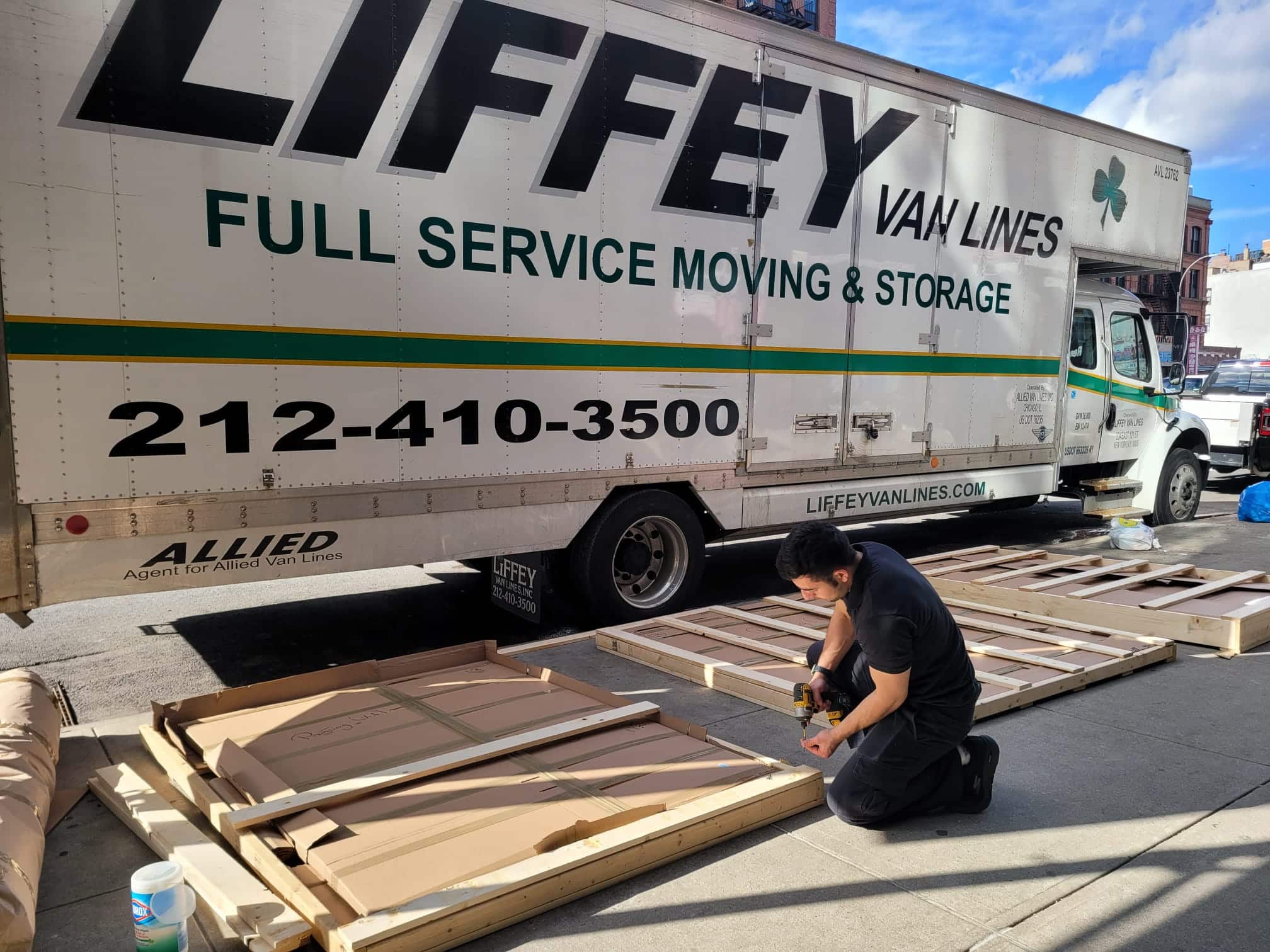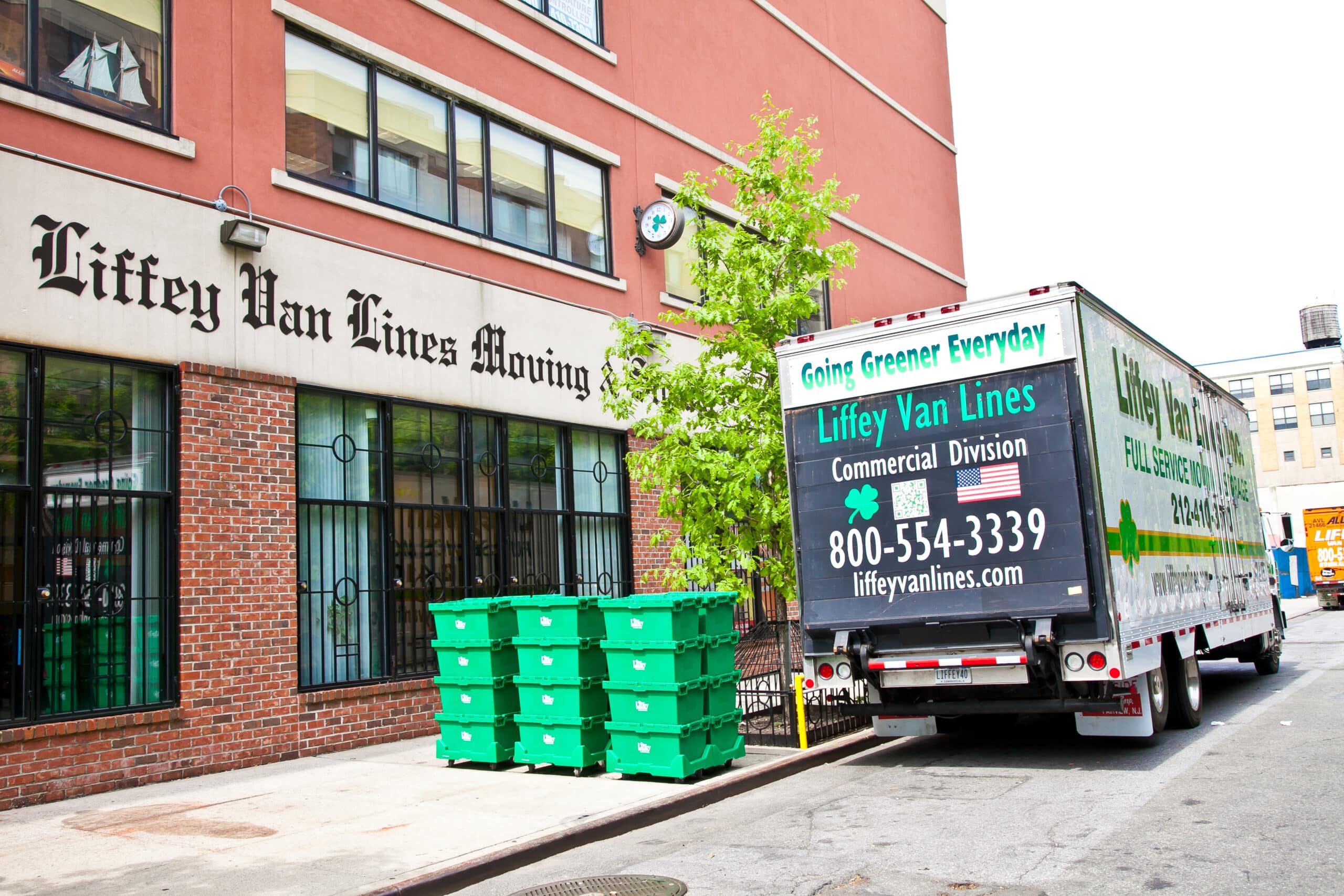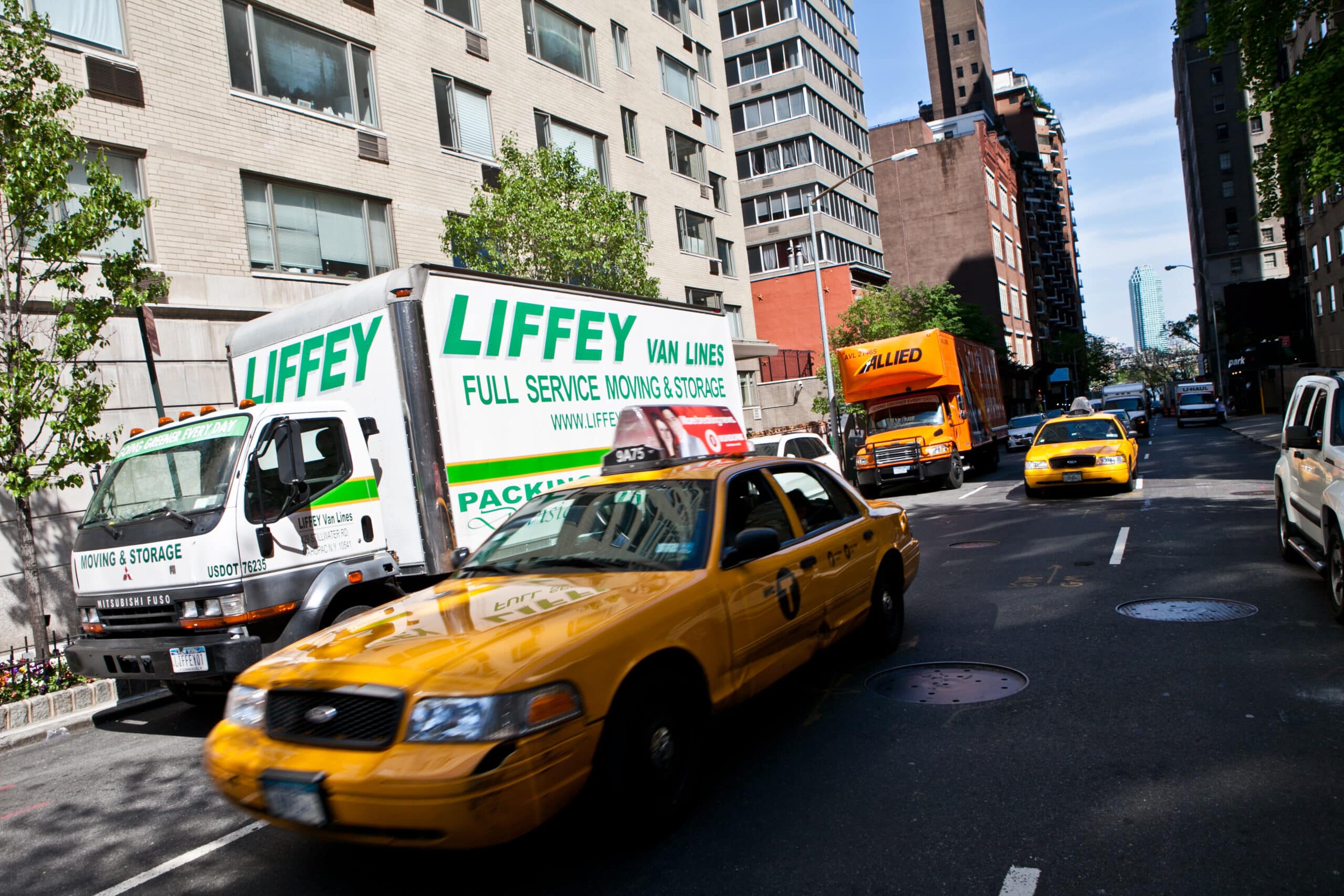Table of Contents
It’s moving day in Manhattan. You’ve planned every box, reserved your movers, and suddenly your doorman says, “You can’t move in without a Certificate of Insurance.” This moment is what every New Yorker dreads.
Quick Answer: NYC building moving requirements include a Certificate of Insurance (COI), elevator reservations, and compliance with NYC Department of Transportation (DOT) moving permits. Understanding and coordinating these early ensures a seamless move.
Most NYC residential and commercial buildings follow strict protocols. From booking elevators to securing parking permits, these rules protect property and public space. That’s why working with movers experienced in NYC building logistics—like Liffey Moving—means avoiding delays, fines, and undue stress.
For over 45 years, Liffey has handled these details for clients across all five boroughs. We’ll break down what you need to know before your next NYC move.
Get your guaranteed quote from Liffey Moving
Every building in New York City enforces specific move-in and move-out rules. These NYC building moving requirements often include elevator scheduling, COI submission, time restrictions, and service entrance access.
Pro Tip: Liffey Moving provides COIs directly to your building management, ensuring approval before moving day.
In Manhattan especially, management companies like Douglas Elliman or FirstService Residential require advance COIs. In contrast, older brownstones in Brooklyn Heights may simply ask you to protect stair rails.
For full-service coordination, consider our professional moving services covering every part of the city.

A Certificate of Insurance protects both you and the building during the move. It demonstrates that your movers are licensed, insured, and compliant with city standards.
Typical COIs include:
Avoid booking movers without this document. According to NYC Consumer and Worker Protection, only licensed movers may operate legally within city limits.
Pro Tip: Liffey Moving automatically issues COIs for all NYC buildings at no extra cost—a key part of our guaranteed pricing promise.
If building management requests revisions, Liffey’s operations team sends updated COIs within hours. This responsiveness helps you meet board deadlines and avoid rescheduling fees.

High-rise buildings in Manhattan and Downtown Brooklyn often require elevator reservations for moves. You’ll usually need to block one elevator as a service elevator.
1. Contact building management early. Some require 2–3 weeks’ notice.
2. Confirm moving hours. Most allow 9 a.m.–4 p.m., Monday–Friday.
3. Provide COI before approval. Without it, your time slot may be canceled.
4. Notify movers. Ensure your moving company aligns truck arrival with elevator scheduling.
Pro Tip: Our hourly-rate movers adjust schedules dynamically if your elevator slot changes last-minute—common with pre-war co-ops or condo boards.
In neighborhoods like the Upper West Side or downtown Manhattan, elevator reservation windows can book out during peak season (May–September). Planning early saves you from last-minute conflicts.

Parking a moving truck legally in NYC can be complicated. The NYC building moving requirements often include obtaining a temporary parking permit from the Department of Transportation.
According to the NYC DOT, you can apply online for a temporary “No Parking” permit at least 48 hours before your move.
Our Brooklyn and Queens moves often require double-parking accommodations or residential permit coordination.
Pro Tip: Liffey’s team handles all DOT moving permits to prevent towing fines and parking tickets—a common cost for unprepared movers.
Learn more about local NYC moving services managed by our licensed professionals.
Moving costs and scheduling vary by season in New York. Most buildings restrict weekend or holiday moves, intensifying demand from May through September.
Pro Tip: Booking off-season helps you secure both elevator access and discounted NYC building moving requirements compliance.
During winter months, movers must often protect hardwood floors from salt and slush. Liffey provides plastic runners and stair protection sheets as standard—another way we make every move safer and cleaner.
Understanding how these NYC building moving requirements impact cost is crucial. Hidden expenses often appear in the form of waiting time, parking fines, or weekend surcharges.
| Move Type | Average Cost | Common Add-Ons |
|---|---|---|
| Studio Apt | $900–$1,300 | Short notice COI, elevator padding |
| 2-Bedroom | $1,500–$2,500 | Long carry, stair fees |
| 3-Bedroom | $2,800–$3,800 | Multiple trips, storage |
Pro Tip: Our guaranteed flat-rate moving quotes include COI submission, elevator coordination, and building protection materials.
You’ll never pay hidden COI or permit fees with Liffey Moving. Our transparent system itemizes all expenses before you sign.
Building superintendents in Manhattan or Queens frequently inspect for damage after moves. You can reduce disputes by:
Many upper-level co-ops—like those in the East 70s or SoHo—require damage deposits. Submitting your COI early helps refund deposits faster after successful inspections.
Pro Tip: Our crews bring protective blankets, floor runners, and door guards to satisfy COI and inspection standards in all NYC buildings.
For specialized cargo, explore our fine art and specialty services for professional handling.

Yes. Most NYC buildings require a COI for both move-in and move-out. Liffey Moving provides proper COI forms directly to management, saving you paperwork time.
Typically 24–48 hours if you provide your building’s requirements early. Submit management contact info when booking your move.
Your movers must reschedule or carry items through stairs—potentially adding labor time. Communicate changes as soon as possible.
Yes. You often need temporary permissions, especially in Manhattan and Brooklyn. We manage all requests with the NYC DOT to guarantee legal parking.
The last weekend of each month—especially summer months—see exponential demand. Schedule your move at least 3 weeks in advance.
Buildings may refuse entry. Always confirm your movers are licensed and insured with a COI like those Liffey issues standard.
Licensed movers carry liability under their insurance policy. Keep copies of your COI to ensure accountability.
Key Takeaways:
Liffey Moving has navigated NYC buildings since 1975, ensuring every move meets local regulations smoothly. As NYC’s exclusive Allied Van Lines agent, we combine neighborhood-specific experience with global moving resources.
Get your guaranteed, transparent quote today—call (212) 410‑3500 or request a quote online.



